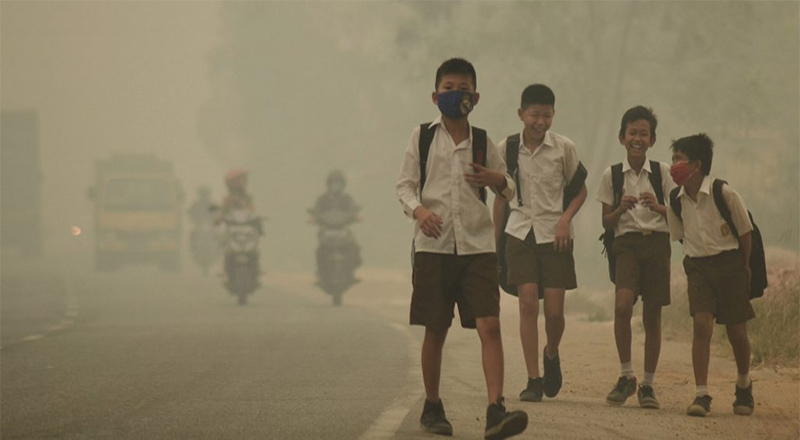- Deteriorating Delhi-NCR air quality, due to changing weather patterns and stubble burning has left citizens worried.
- Breathing in polluted air can harm your child’s lungs, brain, and heart.
- As per a WHO report on air pollution and child health, every day around 93% of the world’s children under the age of 15 years (1.8 billion children) breathe air that is so polluted.
- Air pollution can impact a child’s health in several ways.
- Protecting children from air pollution requires multiple actions, including individuals, communities, and government policies.
Deteriorating Delhi-NCR air quality, due to changing weather patterns and stubble burning has left citizens worried. The polluted air is not only impacting adult’s health but also posing a significant health risk to a child’s well-being. Prolonged exposure to air pollution can hinder a child’s physical and cognitive development, potentially resulting in learning difficulties and behavioural challenges.
As per a WHO report on air pollution and child health, every day around 93% of the world’s children under the age of 15 years (1.8 billion children) breathe air that is so polluted it puts their health and development at serious risk. The report revealed that when pregnant women are exposed to polluted air, they are more likely to give birth prematurely and have small, low birth-weight children. Air pollution also impacts neurodevelopment and cognitive ability and can trigger asthma, and childhood cancer. Children who have been exposed to high levels of air pollution may be at greater risk for chronic diseases such as cardiovascular disease later in life.
Air pollution can impact a child’s health in several ways.
Respiratory Problems: Children breathing polluted air are at higher risk of developing asthma and other respiratory diseases. Airborne pollutants can irritate their airways and make it difficult to breathe.
Developmental Delays: Prolonged exposure to air pollution can affect a child’s cognitive and physical development. It may lead to learning difficulties and behavioral issues.
Low Birth Weight: Pregnant women exposed to air pollution are at risk of giving birth to low-weight babies, who may experience health problems and developmental issues.
Weakened Immune System: Pollutants in the air can weaken a child’s immune system, making them more susceptible to illnesses, including common infections.
Heart Problems: Long-term exposure to air pollution can increase the risk of heart problems in children, such as cardiovascular diseases later in life.
Reduced Lung Function: Air pollution can hinder the growth of a child’s lung capacity, which may lead to chronic lung diseases in adulthood.
Cognitive Impairment: Poor air quality has been linked to cognitive impairments, potentially affecting a child’s ability to concentrate and perform well in school.
Emotional Stress: Living in areas with high air pollution can cause emotional stress in children, leading to anxiety and depression.
Protecting children from air pollution requires multiple actions, including individuals, communities, and government policies. People need to work together to make the air cleaner and healthier for kids. WHO has listed measures that can be taken to protect children from the harmful effects of air pollution. Check those measures below.
- Stop burning household and farm waste.
- Reduce children’s exposure to air pollution caused by vehicle exhaust emissions.
- Keep your children healthy – ensure they get their shots, eat nutritious food, and have plenty of chances to play and stay active.
- Keep an eye on air pollution levels if the city you live in has an air quality monitoring station.
- Raise awareness among your community about the health impacts of air pollution.
(With inputs from agencies)





